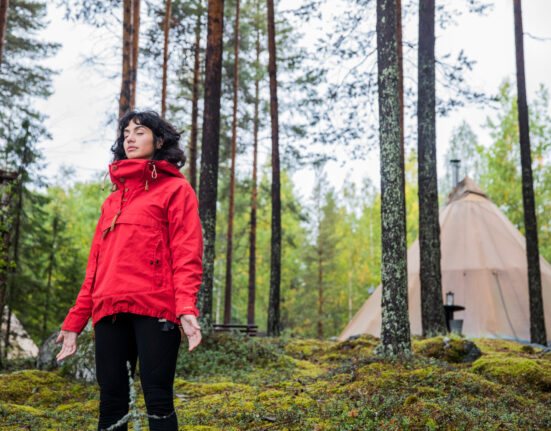
In the second part of ‘parenting international children’, Lysanne Sizoo looks at multilingualism, choosing a local or international school and the pros and cons of some typical character traits of so-called Third Culture Kids (TCKs).
In the previous article, I described how raising international children demands more of you as parents, in terms of time and awareness. In this essay, I want to take up some of the questions I am often asked by cross-cultural parents; the issue of multiple languages, choosing a local or an international school, dealing with mono-cultural friends and finally, some typical personality traits that might or might not mask a deeper need for being a ‘normal’ child.
‘Third Culture Kids’ (TCKs) is a term that has been used since the 1950s to describe children that do not grow up in their parents’ home culture. The idea is that the ‘third culture’ is neither the home, nor the host culture, but a parallel culture, shared by other ‘global nomads’, who carry home in their heart, rather than linking it to a geographical place.
Bi-lingual or even tri-lingual?
According to Christina Bosemark, founder of the Multilingual Children’s Association, a child needs to be exposed to a language for at least 30% of the time to begin to master it fluently. We thought we would give our son the best start in life linguistically, teaching him Dutch, Swedish and English. The confusion started when both my husband and I (not speaking one another’s languages), would have to translate the latest communication with our son for the benefit of each other. I soon found myself doing the double-language act at the doctor’s surgery and playgroups too, just in case people thought I’d told my son to beat their little Johnny over the head, instead of telling him to share nicely. All in all, it became rather tiresome, and when our son chose to speak his first words in English, we eventually dropped our ambitious plan and turned English into our ‘family language’ (the second most common approach). When we moved to Sweden, he quickly adopted their language as his second, becoming fluent in both. British psychologist Penelope Leach won my heart when she repeatedly told nervous mums and dads; “if it works for you, it will work for the baby”. And I truly believe this applies to multilingualism as well.
Pitfalls to avoid are spousal hurt feelings when one partner feels left out because s/he doesn’t speak the language of the other. Another is getting too ambitious and overburdening the child with more than the 30% rule can handle. Patience is also important, since multilingual children sometimes develop more slowly linguistically. Remember, if you feel you want the support of other mums and children that are speaking your language, then you can either find or set up a mono-lingual mother and toddlers group, using Facebook or meetups. And most of all, keep asking yourself, “is it my need or theirs” when pushing your culture/language on to a reluctant child. People ask me if I mind that the Dutch language was lost in our parenting. And no, I really don’t mind. If and when the time is right, our son can explore some of his Dutch roots, if it works for him.
A Swedish or International School
Even non-Swedish expat parents consider the ‘local’ school as a viable option to the traditional international school option. And we’re lucky that in Sweden, the land of både/och (and/and), it is even possible to have a combination of both!
The drawbacks of international schools are often the advantages of local schools, and vice-versa. While at an international school, your third or cross-culture child will be socialising with like-minded individuals, they will also have to deal with friends coming and going, as families transition from one posting to another. In the local school they are likely to have the same friends for extended periods of time, but come up against the mono-cultural obsession with ‘where are you from?’
Another thing to consider is the Swedish curriculum, which can be very different from other countries. Children don’t start formal school until the age of 7. This gives plenty of ‘growing time’ for social interaction and creative play. You know your child best. If s/he’s a late bloomer, then maybe the Swedish school system will support them better. If academic rigour is important, especially with a view to further moves, then the international curriculum will make more sense.
When it comes to communicating with the local, mono-cultural kids after school, there is often an issue about hanging on to your own cultural values and norms when ‘the locals’ come to play. It’s a generalization, but in my experience Swedish children are not raised as rigorously in the ‘please and thank you’ culture as, for example, English children. In our house I made a link between speaking English and behaving like ‘the English’ (again, another generalization). Approached in a light hearted way, with a sensitivity to teaching them about other cultures, it can be a fun and interesting experience for both parents and children.
Personality characteristics of TCKs
When I teach the TCK workshops, I always put up the ‘typical traits’ of TCKs as a spectrum, or a set of dualisms. For example, being psychologically mature can be a great asset, but if it means your child feels that they can’t ever be decidedly immature, silly and even despairing, then the positive trait has gone too far. In one of the TCK videos that I share, a girl explains how she felt she could never express to her parents that she was finding it really hard to cope at times, “because I know I was supposed to be so grateful for the experience they were giving me, that I didn’t want to disappoint them”. That’s taking psychological maturity to a level where it is damaging to the child’s self-esteem.
…be aware that while many TCKs develop excellent personality traits due to their cross cultural experience, be vigilant that these traits don’t stand in the way of ‘normal’ childlike behaviour
An area of disconnect between multicultural and mono-cultural kids is that the former tend to have a broader world view than the latter, since they have two culturally distinct forces at play in their upbringing. This needn’t be a problem and it’s good to speak to the school about this; wise teachers will make use of this broader experience, rather than feeling threatened by it. Where it gets more serious is with an international child that has had experience of living in countries that suffer from war, famine or natural disasters. They will have a far deeper, emotional connection with the suffering of people there, than mono-cultural kids, for whom it remains more abstract. There have been instances of which I am aware in my role as a councillor, where children have been told by their peers that they are acting ‘over the top’ when new natural disasters or famines hit the headlines. It’s not the fault of either the mono-cultural or the TCKs, but sensitive parenting and teaching can help sort out the feelings of confusion, when TCKs feel made fun of by their local friends.
International kids know how to make the most of their time and tend to relate very quickly at a very deep level. Around issues of identity and even loss, they understand one another better than anyone. Friendships can be formed very quickly and intensively, which is rewarding for your child. However, diving in at the relational deep end with a local kid might not be either culturally or individually ‘right’; before you know it, they’ve run a mile from this ‘intense’ foreign kid. If this is experiencd often enough, it can lead to avoidance of social contact altogether, especially with international children that have experienced multiple moves and upheavals. These TCKs can begin to experience feelings of loneliness and isolation and often need to express their grief at the many losses they have already suffered.
Another well-known character development is the growing ability to adapt and adjust. TCKs grow long sensitive antennas that alert them to what is expected and how to behave in each new environment. Adaptability is great, but when you become such a chameleon that you no longer know the core of your own identity, it becomes incredibly difficult to be centred. It is up to us, as parents, to look at what’s below the surface, to be vigilant for the extremes, and to continue to invite our TCKs to be, if they need to be, immature and robustly non-adaptable at times.
In summary
When it comes to languages skills, it has to work for all parties involved: mum, dad and especially the child. There is no ‘right’ or ‘wrong’ way; there’s just your family’s unique way. When it comes to schooling, think of the academic as well as the social aspects and make use of the ‘golden mean’ that exists in Sweden: a local school with an international flavour. Be aware of the cultural bumps that choosing a local school might add to the mix and solve them creatively and with respect for your own family culture. And finally, be aware that while many TCKs develop excellent personality traits due to their cross cultural experience, be vigilant that these traits don’t stand in the way of ‘normal’ childlike behaviour. Actively encourage your child to express how they experience their cross-cultural adventure, without judgement and without letting your own needs stand in the way of theirs.
Further reading:
Christina Bosemark’s webpage, founder of the Multilingual Children’s Association
A Home for Third Culture Kids
Copyright 2014: Lysanne Sizoo
Lysanne Sizoo
Lysanne teaches the ‘Global identities’ workshop both in Stockholm and on her houseboat close to Amsterdam.
DISCLAIMER
These articles are a composite of my personal, my colleagues’ and
clients’ experiences in order to protect recognition. All therapeutic
meetings are Turning Point are confidential, and specific content would
never be shared in a public forum.












